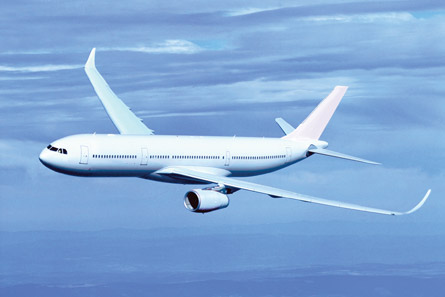EASA Issues Warning About Battery Drain on All Airbus Aircraft During Storage

The European Union Aviation Safety Agency (EASA) has issued an airworthiness directive (AD) addressing a battery problem related to aircraft storage for all Airbus aircraft.
The proposed AD, currently open for comments from stakeholders, arises from an investigation conducted by Airbus and an undisclosed manufacturer of Nickel-Cadmium (Ni-Cd) batteries. Both companies identified that the “repetitive disconnection and reconnection of batteries during airplane parking or storage,” as per the aircraft’s maintenance manual, could result in a loss of battery capacity.
EASA has stated that if left uncorrected, this condition could lead to reduced battery endurance performance, potentially resulting in a failure to provide essential electrical power during abnormal or emergency situations.
Airbus initially addressed this potential issue by issuing Alert Operators Transmissions (AOTs) for A320, A330, A340, and A380 aircraft. These AOTs provided maintenance instructions to restore aircraft to an airworthy condition and preserve battery capacity during storage.
In response to Airbus’s actions, EASA published an AD in December 2020, requiring operators of A320, A330, A340, and A380 family aircraft to replace affected Ni-Cd batteries.
However, Airbus and the battery manufacturer have now determined that the on-wing preservation procedures outlined in the AOTs, as well as the recommendations in Airbus Operators Information Transmission (OIT) for A350 and A300/A310 family aircraft, did not achieve the expected preservation of battery capacity.
As a result, the proposed AD will supersede the December 2020 directive, extending its applicability to the A350 and A300/A310 aircraft families, and will mandate the replacement of affected batteries on all Airbus aircraft.
EASA has specified time limits for compliance with the new directive, which vary depending on the Airbus aircraft family:
- For the Airbus A320 family (including A318ceo, A319ceo, A319neo, A320ceo, A320neo, A321ceo, and A321neo), batteries must be replaced before reaching six months of on-wing storage before the aircraft’s return to service.
- The same six-month time limit applies to all Airbus A330 (A330ceo and A330neo) and A340, as well as the Airbus A300/A310 family aircraft.
- For the Airbus A350 and A380 aircraft families, batteries have an on-wing storage time limit of 12 months.
Specific battery part numbers (P/N) have been defined by EASA’s AD.
Stakeholders are invited to provide feedback on these changes until October 2, 2023. EASA plans for the directive to take effect 14 days after that date, following standard procedure.
Sources: AirGuide Business airguide.info, msn.com, airbus.com, EASA
